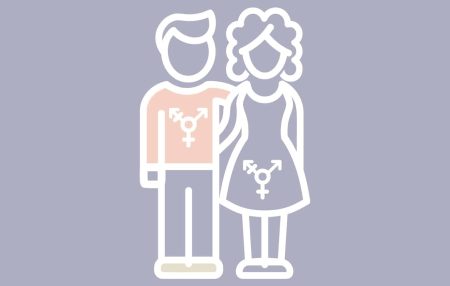31 July 2020
Latest data from the Office for National Statistics (ONS) shows that the number of women over 40 giving birth has risen to record levels in England and Wales. In contrast, fewer than one in 10 women aged between 25 and 30 had a baby last year. This growing trend in later life parenthood is driven by a number of factors and it is likely to intensify as a result of the continued global Covid-19 pandemic. It brings with it a range of complex legal, medical and wider issues.
What is driving the growing trend in later life parenthood?
The number of women who have conceived aged 40 and over has risen significantly since 1977 according to the ONS. In 2019, 29,618 women aged over 40 had a child in England and Wales at a rate of 16.5 births per 1,000 women, which is triple the figure of 5.3 in 2000.
Women are increasingly delaying having a child in their twenties and thirties and are instead focusing their time and energy on their jobs and careers, getting on the property ladder and trying to reach a more stable economic position.
Demand for fertility treatment in later life
In delaying parenthood, women are increasingly battling age-related declining fertility levels and turning to fertility treatment and assisted conception to conceive.
As such, demand for fertility treatment remains strong in the UK. According to latest statistics from the Human Fertilisation and Embryology Authority (HFEA), around 54,000 patients underwent 68,724 fresh and frozen IVF cycles as well as 5,651 donor insemination cycles in the UK in 2018. Since 2013 the number of egg and embryo storage cycles has also increased fivefold to just under 9000 cycles in the UK in 2018.
However, age related factors increase the risks of developing a serious health problem such as cancer (e.g. breast, ovarian, cervical, bowel) and heart disease, which can unexpectedly delay and disrupt family building plans and parenthood and result in loss of fertility. Additionally, later life pregnancies bring with them a higher risk of medical complications including birth defects, miscarriage, gestational diabetes, pre-eclampsia and a difficult labour and delivery.
It is positive that birth rates from IVF have increased over the last thirty years, with the average birth rate per embryo transfer at 23% in 2018 in the UK. However, birth rates through IVF decline with age. In 2018, birth rates per embryo transfer stood at 25% for patients aged 35-37, 19% for patients aged 38-39 and 11% for patients aged 40-42, whilst patients aged 43 and over have consistently had birth rates below 5% using their own eggs according to latest statistics from the HFEA.
Later life parenting and family dynamics
Later life parenting can provide more ability to invest in and enjoy family life. Later life parents can have greater financial stability, less study and career progression pressure and more control over their work-life balance. Additionally, they can devote more time and offer a wider range of opportunities to their children, such as travel and holidays, extra-curricular activities and development of skills and hobbies.
However, later life parenting can also create a range of complex family dynamics arising from second time relationships, blended families encompassing children from previous relationships and larger age gaps and generational differences between parents and their children. This can put strain on family relationships and require careful management.
Later life parenting also requires increased legacy consideration and management. This includes the importance of Will provision and appointment of guardians to care for children in the event of unexpected death. It also increasingly extends to biological and genetic legacy in the event of donor conception, inter-family donation, involvement of a surrogate, direct-to-consumer DNA testing and increasing focus on genomics and genetic testing to identify disease risk and transition to personalised and preventative medicine.
Later Life Parenting and Fertility and Family Law
This trend in delayed parenthood is likely to intensify as a result of the unprecedented disruption, uncertainty and loss caused by the continuing global Covid-19 pandemic. In turn, this is likely to continue to contribute to trends resulting in:
- More fertility preservation through egg, sperm and embryo freezing.
- More demand for import and export of eggs, sperm and embryos.
- Growing demand for donor eggs and sperm.
- Continued demand for surrogacy.
- Increased focus on posthumous conception.
- Complex family dynamics.
This rapidly evolving fertility and family landscape surrounding later life parenting creates a range of legal and wider issues that require careful consideration and management. Specialist fertility and family law advice can effectively navigate many complex legal issues, including:
- Legal options where women facing rapidly declining age-related fertility and loss of opportunity of fertility treatment and conception (e.g. fertility preservation and maximisation, management of existing personal relationships and implications of using donor gametes and surrogacy).
- Difficulties with storage and use of frozen eggs, sperm and embryos in fertility treatment in the UK (e.g. lack of consent and expiry of storage terms).
- Issues associated with import of frozen gametes and embryos into the UK for use in fertility treatment and surrogacy (e.g. due to anonymous and commercially obtained gametes and embryos which engage UK public policy restrictions).
- Issues associated with the export of frozen gametes and embryos abroad for use in fertility treatment and surrogacy (e.g. lack of consent and storage term difficulties).
- Unexpected death of a loved-one and related issues associated with posthumous storage and use of eggs, sperm and embryos in fertility treatment (e.g. due to an accident, illness including Covid-19).
- Options and legal issues associated with fertility preservation and maximisation.
- Impact on individual fertility and family building options and legal issues following a serious medical diagnosis and consequent treatment.
- Legal parentage, parental responsibility and financial provision issues associated with assisted conception using frozen gametes or embryos involving a known donor, co-parent or surrogate and dispute mitigation.
- Care and upbringing of children in the event of a dispute with an ex-partner, parent, donor or surrogate.




